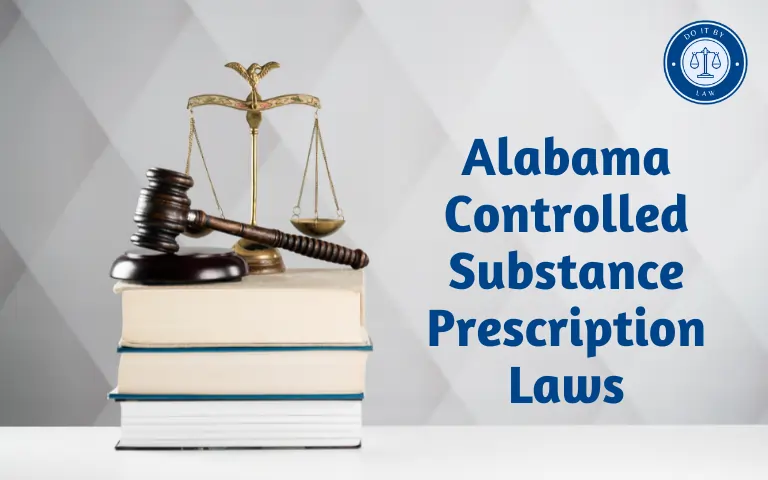Alabama Hunting Laws: What You Need to Know
Alabama Hunting Laws is deeply ingrained in Alabama’s culture and an important driver of the state’s tourism economy. However, it is highly regulated for sustainability and safety. This comprehensive guide covers Alabama hunting licenses, seasons, approved weapons, hunter education, limits, illegal practices, penalties, recent changes, and more.
When Were Alabama Hunting Laws and Regulations Established?
Hunting legislation in Alabama dates back to the 1800s when the state first began setting hunting license fees, penalties for illegal hunting, and rudimentary seasons. The Alabama Department of Conservation was founded in 1907 to start managing game populations.
Major hunting regulations were passed in the 1920s-1940s, including:
- Implementing deer hunting license and protection laws
- Establishing hunting seasons and bag limits for the first time
- Requiring hunter education programs
- Restricting certain ammunition and weapons
Today’s hunting laws descend from Alabama’s Game and Fish Act of 1935. Hunting regulations are now set by the Alabama Department of Conservation and Natural Resources.
Who Do Alabama Hunting Laws and Rules Apply To?
Alabama’s extensive hunting rules and regulations apply to:
- All hunters pursuing game on public or private land in the state
- Both resident and non-resident hunters
- Hunters of all ages from youth to seniors
- Individuals using firearms, archery equipment, or other legal hunting methods
- Owners who allow hunting on their private property
- Outfitters and commercial hunting preserve operators
Alabama hunting statutes cover every person hunting game animals like deer, waterfowl, turkey, boar, rabbits, and more. Licenses and compliance are mandatory whether you live in Alabama or are visiting.
Key Categories of Alabama Hunting Laws and Regulations
Major categories of Alabama Hunting Laws regulations include:
- Licensing – Purchasing requirements, types of licenses, fees, hunter education mandates
- Seasons and Limits – Dates, bag limits, and permit quotas for deer, turkey, and other game animals
- Methods and Equipment – Approved weapons, ammunition, archery equipment, calls, decoys, baiting rules, etc.
- Safety Rules – Hunter orange requirements, tree stand policies, reporting accidents, transporting firearms
- Public vs Private Land – Public land permits, trespass laws, commercial hunting preserves
- Compliance – Penalties for violations, license revocation, mandatory reporting
- Deer Carcass Importation – Chronic wasting disease bans on whole carcasses from out-of-state
Specific regulations also govern the trapping of fur-bearing animals like foxes, coyotes, and bobcats in Alabama.
Alabama Hunting Laws License Requirements
To legally hunt game in Alabama, proper licenses and permits are required:
- Resident License Fee – $27 for basic annual resident hunting license. Higher fees for wildlife heritage license.
- Non-Resident – $275 for basic non-resident annual hunting license. Discounted short-term options.
- Hunter Education – Completion is mandatory for anyone born after 1977 to purchase a hunting license.
- License Year – Licenses are valid from September 1 to the following August 31.
- Carrying When Hunting – Must have a license in possession and display on vehicle dash.
- Revocation Penalties – Certain violations like baiting deer can result in loss of license.
- Lifetime Licenses – Available for ages 1-4 for $500 and 65+ for $50.
Purchasing the proper license type is mandatory before legally hunting any animal in Alabama.
Alabama Deer Hunting Seasons, Limits, and Regulations
Here are some key regulations specific to deer hunting in Alabama:
- Season Dates – Vary by zone but generally open mid-October and extend through January.
- Daily Limits – Maximum 3 bucks per season in most areas, with 1 buck daily.
- Methods – Archery, muzzleloader, rifles, handguns, shotguns, and crossbows are legal during dates permitting those weapons.
- Baiting – Banned as of 2022. No protein pellets or grains. Food plots still legal.
- Antler Restrictions – Vary by zone and season. Some require 4+ points on one antler.
- Tagging – Harvested deer must be properly field-tagged.
- Reporting – Deer kills must be reported within 48 hours.
Staying updated on seasonal changes, zone maps, antler requirements, and baiting rules is crucial for legal deer hunting.
Alabama Turkey Hunting Seasons, Limits, and Regulations
Key regulations for turkey hunters in Alabama include:
- Season Dates – Vary by zone but generally late March – early May. Some zone/license exceptions allow fall turkey hunting.
- Daily Limits – 1 gobbler (male turkey) per day, up to 5 per season depending on zone and license.
- Methods – Shotguns, archery, crossbows. No electronic calls or baiting turkeys.
- Tagging – Must tag the turkey before moving the carcass from the harvest site.
- Special youth hunt weekends are also offered. Stay updated on the spring season start dates, and zone changes, and check reference sources for fall turkey hunting.
Alabama Waterfowl Hunting Seasons, Limits, and Regulations
For duck, goose, and other waterfowl hunting, key Alabama rules include:
- Season Dates – Vary by zone and species, generally mid-November through January.
- Daily Limits – Vary by species. Up to 6 ducks per day with no more than 4 mallards, 3 wood ducks, etc.
- Methods – Shotguns, no larger than 10 gauge. A non-toxic shot is required.
- Licenses – State waterfowl stamp required for ages 16+. Federal duck stamp required ages 16+.
- Restrictions – No electronic calls. Unplugged shotguns are limited to 3 shells.
Check season dates, zone maps, and species-specific daily bag limits before waterfowl hunting.
Alabama Bear Hunting Regulations
Alabama has limited bear hunting opportunities due to its small population. Key regulations include:
- License – Special permit required through limited quota drawing each year.
- Season – Generally held for 2 weeks in October.
- Limits – Only 1 bear can be harvested per permit. No cubs or females with cubs.
- Methods – No dogs. Archery or firearms allowed.
- Tagging – Bears must be tagged immediately upon harvest.
Due to limited permit numbers, many bear hunters apply annually without success. Thoroughly review special bear hunting requirements before applying.
Alabama Feral Hog and Coyote Hunting Regulations
Hunting predators and nuisance species like feral hogs and coyotes has fewer regulations in Alabama. Key rules include:
- Seasons – Open year-round for feral hogs and coyotes on private lands.
- Limits – No daily or seasonal bag limits on either species.
- Methods – Daytime hunting only. Electronic calls allowed for coyotes.
- Reporting – Must report any hog hunting activity monthly.
- Licensing – Small game license covers hunting hogs and predators.
Review regulations for hunting hogs and coyotes on public lands, which may have more restrictions.
Penalties for Violating Alabama Hunting Laws and Regulations
Illegal hunting practices carry stiff penalties in Alabama, including:
- Hunting Without a License – Up to $500 fine.
- Exceeding Limits – $250-$500 fine per animal illegally taken, potential jail up to 1 year.
- Night Hunting – Up to $1000 fine and jail for up to 1 year.
- Baiting Deer – $250-$500 fine per deer.
- Trespassing/Harassment – Up to $500 fine and jail for up to 3 months.
- Felony Offenses – Large fines, multi-year jail sentences, lifetime loss of hunting privileges.
Civil damages, asset forfeiture, and loss of hunting equipment can also result from Alabama hunting law violations.
Recent Changes to Alabama Hunting Laws and Regulations
Some notable adjustments made in recent years include:
- Banning deer baiting in 2022, including a prohibition on protein pellets and grains.
- Allowing the use of air bows for hunting deer, turkey, and other game as of 2021.
- Tightening rules on carcass importation from out of state to prevent CWD spread.
- Adding new public land hunting opportunities with associated permits and seasons.
- A lifetime combination hunting/freshwater fishing license was made available for seniors 65+ in 2014.
- Permitting hunting on some WMA lands on Sundays beginning in 2020. Previously prohibited.
Alabama frequently fine-tunes hunting regulations to better manage game populations.
Ongoing Hunting Regulation Controversies and Proposals
Some areas of recent debate over potential Alabama hunting regulation reforms include:
- Clarifying trespassing rules when pursuing wounded game across property boundaries.
- Possibly shortening the 5 deer per day limit applies to some public lands.
- Proposed earlier opening of turkey season in the south zone.
- Discussions over new restrictions on deer dog hunting to address trespass issues.
- I am evaluating the inclusion of coyotes as a small game to allow night hunting.
- Consideration of using drones and night vision equipment to address hog overpopulation.
Input from hunting groups and biological data informs ongoing evaluation of Alabama hunting reforms.
Conclusion
In summary, ethical Alabama Hunting Laws depends on understanding and closely following the state’s extensive regulations on licenses, seasons, weapons, safety protocols, and legal harvesting limits. Reforms continue balancing sustainability and public access with preserving Alabama’s valued hunting heritage. This guide provides a starting point, but staying updated on changes and checking official sources is essential for legally hunting deer, turkey, waterfowl, and other game.







